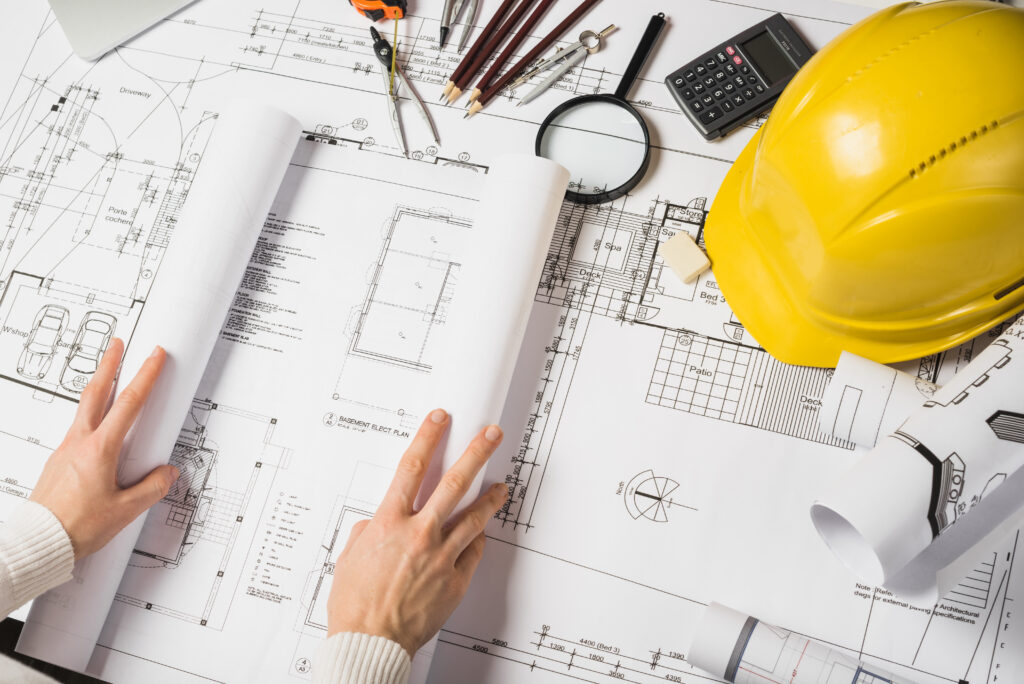When you plan to build a new house, office, or even extend your old building, you have two options: manage the work yourself or hire a civil contractor. Most people choose professionals because construction work is complicated. A civil contractor takes care of everything from planning to handing over the project.
In this blog, you will learn the civil contractor meaning, types, roles, skills, and benefits of hiring them. This will help you understand why hiring a qualified civil work contractor is the right decision.
What is a Civil Contractor?
A civil contractor is an individual or a company that Govern, execute and see through civil construction projects. However, let’s start with what is civil construction – that is constructing infrastructure which could be building of roads, bridges, water networks, and large public projects.
Civil contractors make sure the work is done safely, within time, and within budget. A civil worker works under these contractors to do the actual construction tasks.
Types of Civil Contractors
Different types of civil contractors handle different tasks:
- General Contractors – Manage the whole project, schedule work, and ensure quality.
- Subcontractors – Work under general contractors for tasks like plumbing and electrical work.
- Design-Build Contractors – Handle both design and construction for faster results.
- Engineering Contractors – Concentrate on technical items such as building & electrical systems.
- Heavy Civil Contractors – Build large projects like highways and bridges and airports.
- Utility Contractors – Work on water, gas and sewer systems..
- Environmental Contractors – Work on eco-friendly projects like waste management.
- Road and Highway Contractors – Specialize in roads and highways.
- Water Resource Contractors – They both provide a design for the dam and system to manage the water.
Roles and Responsibilities of a Civil Contractor
A civil work contractor handles:
- Planning and Budgeting – Making schedules and cost plans.
- Site Preparation – Making the site ready for work.
- Material Management – Buying and delivering materials.
- Legal Compliance – Getting permits and following rules.
- Team Coordination – Managing civil labour contractors and subcontractors.
- Quality & Safety – Checking work to maintain safety and standards.
- Problem Solving – Handling delays or material shortages.
- Communication – Giving updates to the client.
- Final Checks – Inspecting before handing over the project.
Skills and Qualifications of a Civil Contractor
To work as a civil contractor, you need:
Qualifications
- 10+2 education (science preferred).
- Degree or diploma in civil engineering.
- Experience on construction sites.
- Valid civil contractor licence.
Skills
- Project planning and management.
- The budgeting and cost control..
- Problem-solving ability.
- Experience on construction techniques and the laws.
- Good communication skills.
Benefits of Hiring a Civil Contractor
- Expertise – Knowledge of building codes and materials.
- Time-Saving – You don’t have to check the site every day.
- Cost-Effective – Better deals on materials and fewer mistakes.
- Access to Workers – Network of civil labour contractors and skilled workers.
- Legal Compliance – Handles permits and regulations.
- Risk Management – Follows safety rules and has insurance.
- Warranty – Provides aftercare and guarantees.
- Stress-Free – Handles everything for you.
Difference Between Civil Construction and Commercial Construction
| Aspect | Civil Construction | Commercial Construction |
| Purpose | Focus on government and community projects like roads, dams, and water systems. | Focus on business projects like offices, malls, and hotels. |
| Type of Projects | Connecting Roads, Bridges, Railways, Airports, and Power along with utility projects. | Offices, malls, hospitals, warehouses and schools. |
| Design Focus | Strong, durable, and eco-friendly designs for public utility. | Designs for business efficiency and tenant comfort. |
| Infrastructure | Employes custom built equipment and materials for extra large work. | Central HVAC, plumbing and electrical for the tenants. |
| Funding | The government or large companies normally fund them and the rules are quite strict. | Funded by private businesses or investors, focusing on cost and quick completion. |
| Regulations | Strict government laws, safety standards, and environmental rules. | Zoning laws and building codes, often with green building certifications. |
How to Find a Good Civil Contractor?
- Check if they have a valid civil contractor licence.
- Ask for their civil contractor contact number for easy communication.
- Review their past projects and client feedback.
- Make sure they work with trusted civil labour contractors.
Conclusion
The successful construction requires a civil contractor. They control all processes including civil works contract planning and end-hand over. Hiring one of these professionals as a civil work contractor will guarantee quality, safety and timely completion regardless of your need to build a road, home or water system.
Therefore, when you design construction next time, go to an experienced contractor and your construction will be hassle free.







